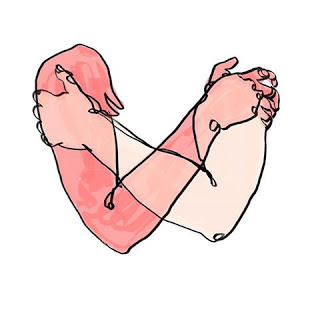About Me

Hii, I'm Dishika Mehta, a college student with dark academia aesthetic and a serious problem of escapism!
A literary blog that takes you a journey through the books I've read and how they've left a lasting impact: an exuberant amalgamation of the learning experiences that they bring and how living vicariously can teach you so much about life- the undeniably complex yet beautiful adventure.

"It's okay to not be okay.">
When his grandfather is diagnosed with a terminal illness, Darius and his family get to visit his native country and meet his maternal relatives for the first time in his life. Dealing with his grandfather's cutting remarks, the gruesome comments of some local boys and taunts of his uncle based on his physical appearance, Darius feels like he doesn't belong.
Through all of it, Darius has a companion- Sohrab: a local Iranian boy and an amicable neighbor who accepts Darius for who he is, defends him from bullies and their hurtful judgments and makes him feel like he belongs by urging people to speak in English around Darius as he is hardly versed in Farsi. The building of their new found friendship is like sipping on a warm, welcoming cup of tea for the soul: refreshing, comforting and inexplicably beautiful.
"Everyone wants you here. We have a saying in Farsi. It translates 'your place was empty'. We say it when we miss somebody."

Darius is constantly riddled with the fear of being replaced by his younger sister, Laleh who he feels is like a do-over for his parents; a perfect little girl fluent in Farsi, charming, popular and socially accepted everywhere she goes: the polar opposite of him. He gets jealous at times but his insecurity never leads him to be hateful and despise his loving sister. The only person who loves him for who he is other than Sohrab is his Mamou, who never fails to show her affection for her beloved grandson even though she doesn't completely understand him at all times. He always seeks the validation of his father and it is soul crushing to see how much it affects him when he doesn't get it.
Darius always felt like people thought the worst about him. He was his own critic. He'd push people away and feel like he was being selfish when he put himself before others. He had a seemingly good life but what people failed to understand was that depression doesn't necessarily need a reason. It just is, an as Darius states 'his brain simply doesn't produce the right chemicals'. The pellets of harrowing memories go unnoticed until they hail a devastating and adverse snowstorm of physical and emotional affliction.
It's so heart rendering to watch everyone eventually trying to find a way to connect to that side of Darius and his emotional 'Slingshot Maneuvers' (or as we call them- mood swings) if not make it better, in their own adorable ways.
"Suicide isn't the only way you can lose someone to depression."
In the book, Darius' mother also acknowledges the difficulties of moving away. It requires abundant sacrifice and the willingness to start over; no matter how challenging it gets. But at the same time, it is important to bear a part of your inheritance with pride.
The beautiful story of Darioush teaches us to treasure, love and cherish your family, value their sacrifices and be there for them unwaveringly, despite trivial complexities and differences. It never gets easy to conquer the generation gap between you and your parents, sometimes even your siblings. But they are always wishing the best for you, however difficult it may seem to believe. Communicate, express and involve them in your life, trust me they love that. ;)
What is your take on approaching and helping people with depression, as a therapist or a confidant? I would love to hear from you in the comments!
Thank you folks, the next post rolls out next week so stay tuned :-)